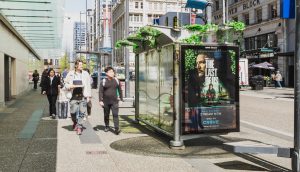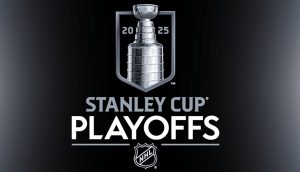Muskoka Brewery and Amsterdam Brewing Co. have partnered with Honda Indy Toronto as the exclusive beer suppliers of the race.
Working together, the two Ontario-based craft breweries will bring their Craft Brewhouse back to the Indy for the second consecutive year, allowing race watchers to taste brews like Muskoka’s Craft Lager and Cream Ale, and Amsterdam’s 416 beer, while they learn about the brewing process behind them.
New to this year, however, the breweries have joined forces to create a specialty beer exclusively for the race. It’s a Belgian Wheat beer, and was brewed with hints of lemon peel and ginger, giving it a less bitter taste profile.
To help promote the collaboration brew, the breweries are running a social media contest to let consumers name it. Consumers can submit their name suggestions via Twitter using the hashtag #Indybrew. The breweries will judge the entries and reveal the winner on Thursday or Friday. The brew will also be promoted through a partnership with 102.1 The Edge.
Also new this year, the breweries have partnered with Toronto-based Smoke’s Poutinerie, and will be suggesting beer and poutine pairings and letting racegoers sample them.
Jason Dawes, brand manager, Field & Stream, Muskoka Brewery, tells MiC that a partnership like this is a perfect fit for both breweries because it allows them to educate racegoers who might not be familiar with craft beers.
He says specialty beers like this are important for craft breweries because they allow them to differentiate themselves from macro breweries like Labatt and Molson, and also offer them a vehicle to start conversations about beer.
He adds that specialty brews are a large part of the Muskoka portfolio, with offerings like Summer Weiss, Legendary Oddity and Harvest Ale, noting that the brews can help the brand connect with consumers by giving them something to look forward to at different points throughout the year.
The partnership with the Honda Indy appears to be part of a growing trend that has seen craft breweries team up with events and festivals to create special brews, and get consumers involved in the process.
Amsterdam, for instance, recently partnered with Arts & Crafts’ 10th annual Field Trip Music & Arts Festival to create a special one-off beer and urged consumers to get involved in the naming process in a similar fashion by offering them prizes, including two tickets to the festival.
Meanwhile, a blog post by CBC Music which asked listeners to pair band names with beer types became something more when Chilliwack BC-based Old Yale Brewing teamed up with other BC breweries to make the beers a reality, resulting in brews like Said the Ale (pictured) and You Say Barley, We Say Rye (inspired by BC bands Said the Whale and You Say Party, respectively) that were released in stores throughout May and June.
Amber Sarraillon, marketing and brand strategist, Amsterdam Brewing Co., says this growing trend of making the brewing process more social is allowing craft breweries to put themselves on the map with a wider audience and connect more directly with consumers.
She says letting consumers name beers or suggest food pairings or new beer types is also a good way for brands to encourage loyalty and get people to try the specialty brews, but cautions that creating specialty beers can also be risky because it can cannibalize sales of the brewery’s core brands and also tends to be more costly to produce.
Dawes agrees that the trend is consumer-driven. He says that, whereas conversations used to centre on wine and food pairings, consumers have become more interested in the nuances of different beers and want to know more about the brewing process. He adds that they’re also looking for more variety and healthier drinking options.
He says the trend is still in his infancy, and looking forward, he sees macro breweries getting on board, either through continuing to acquire craft breweries, or launching their own craft-inspired beer lines, like Alexander Keith’s did recently with its Hops Series ales.
























